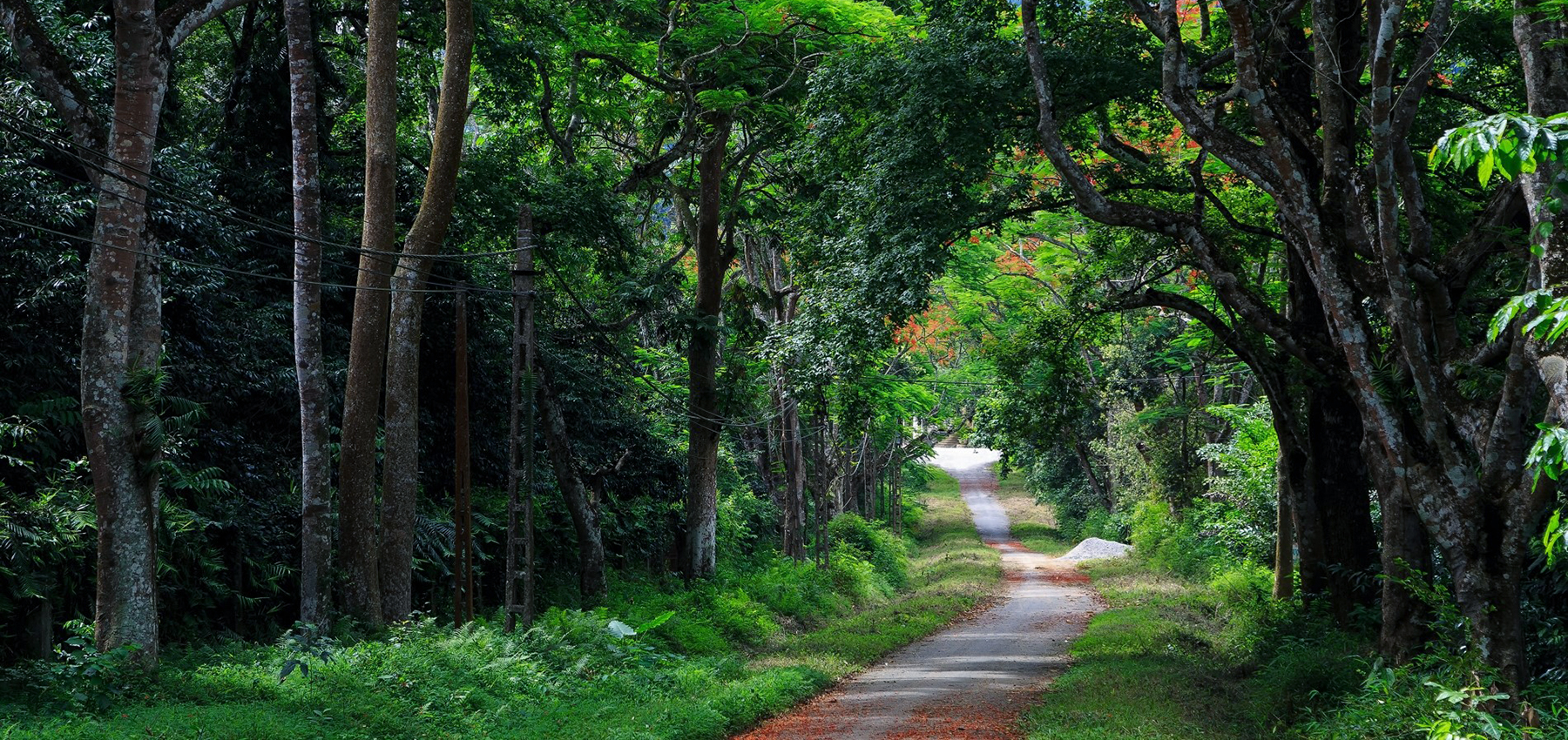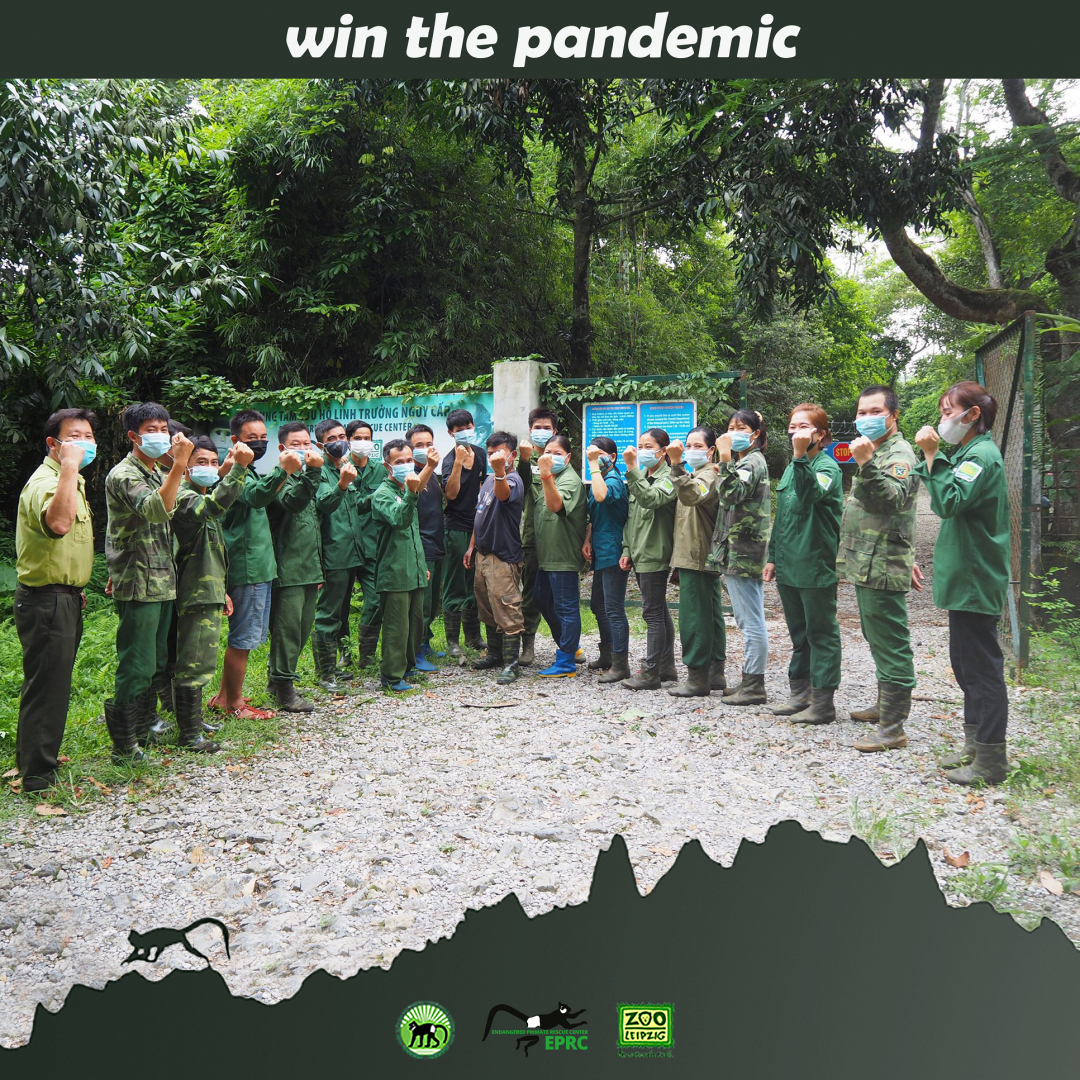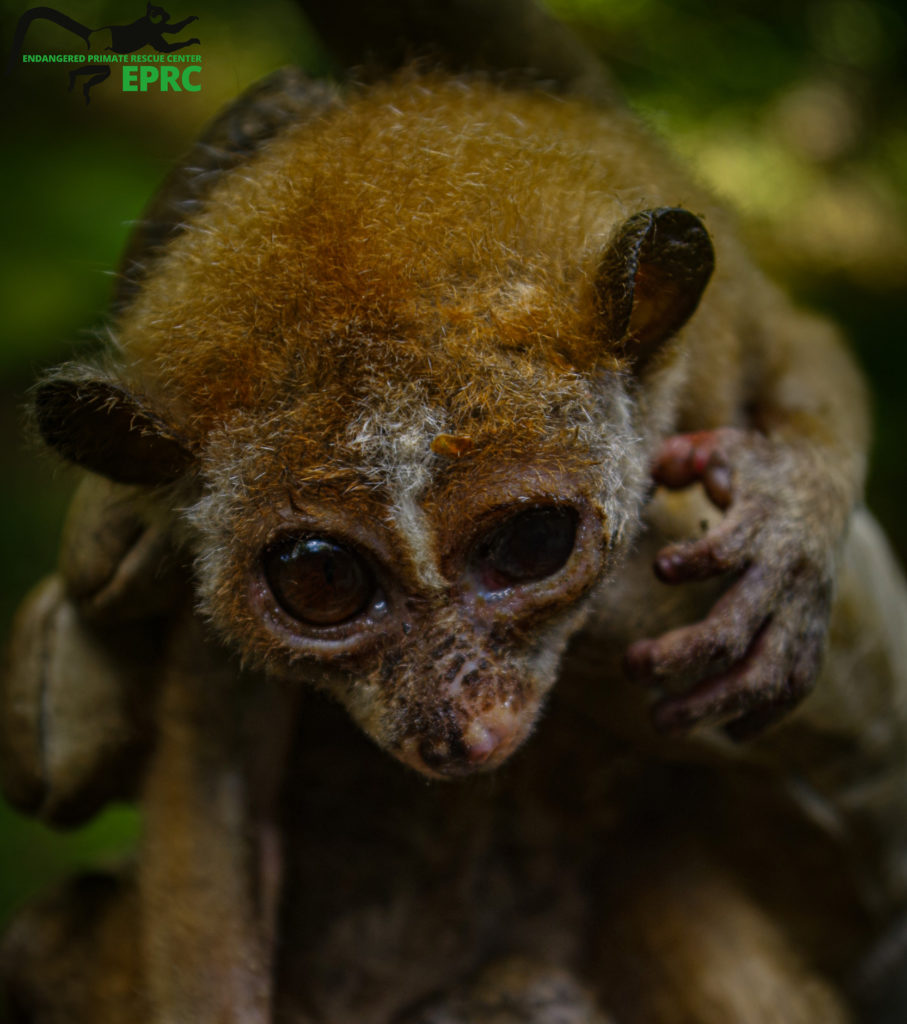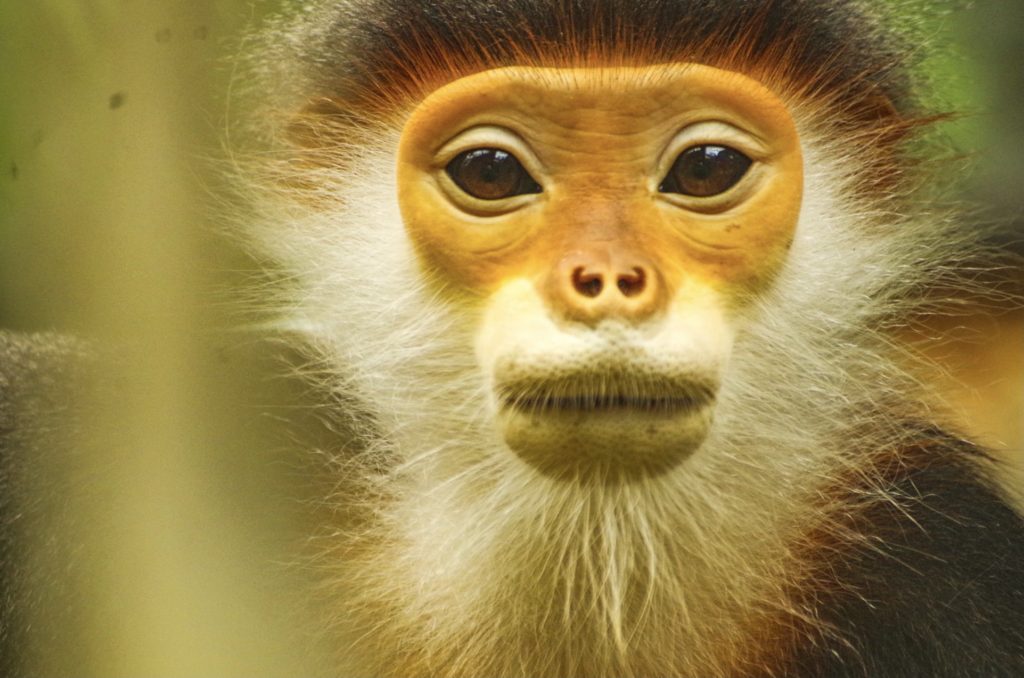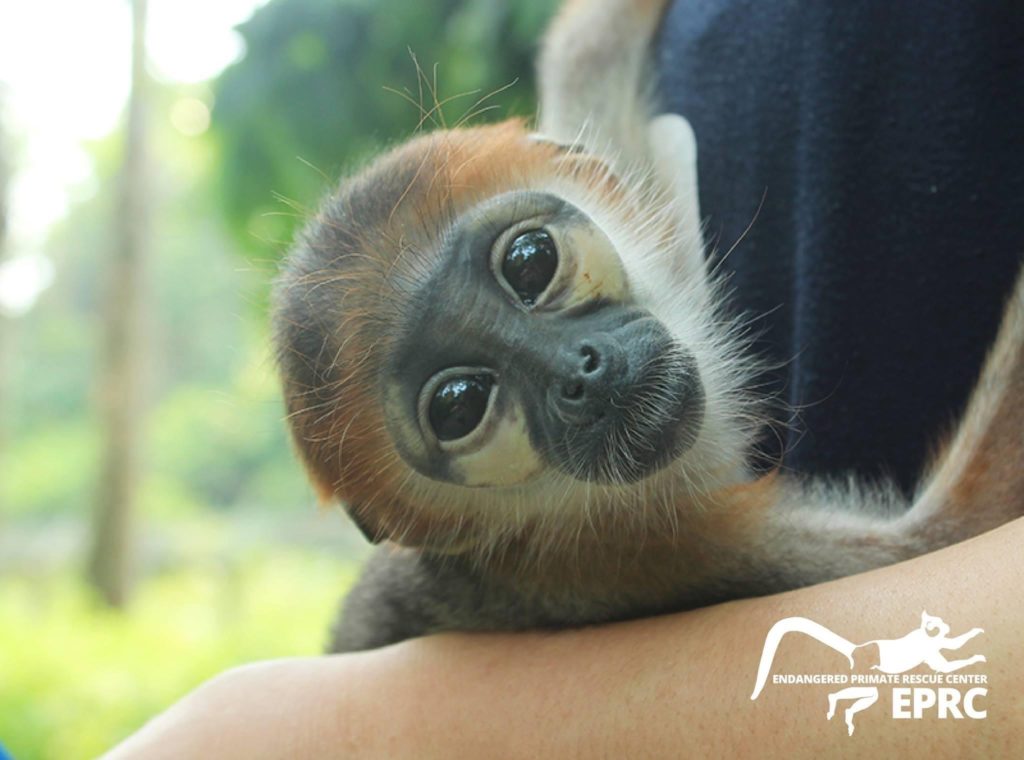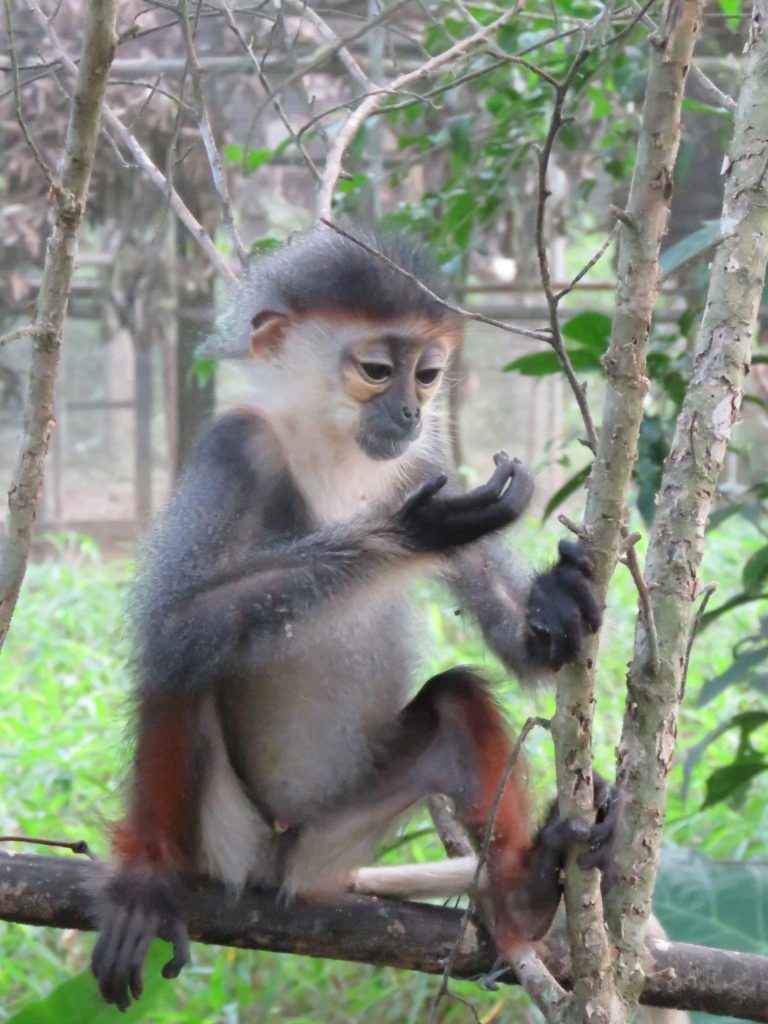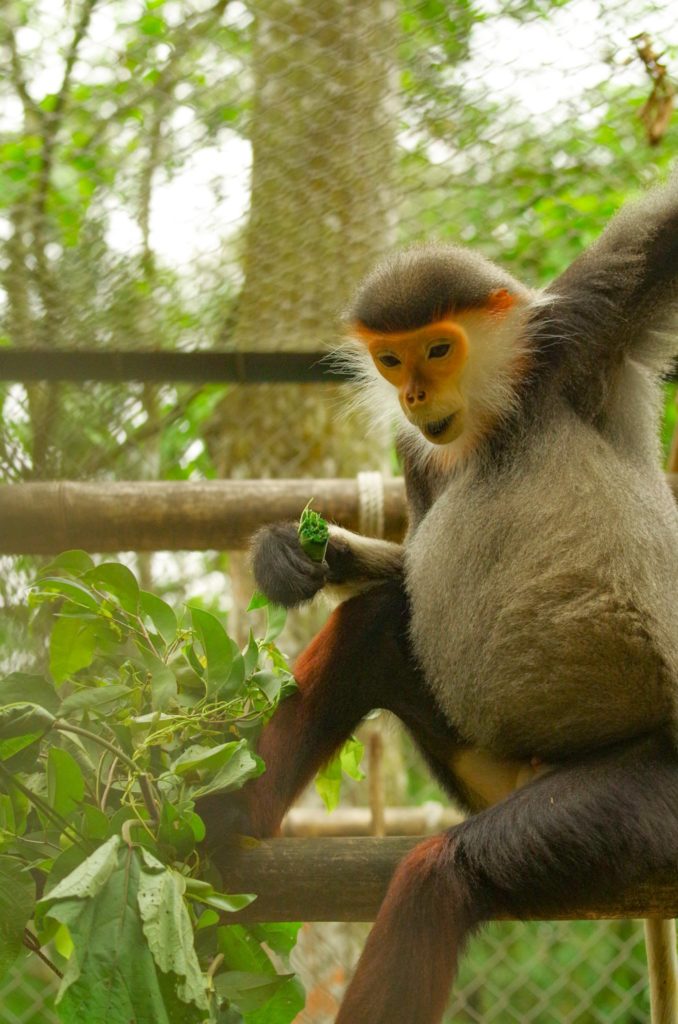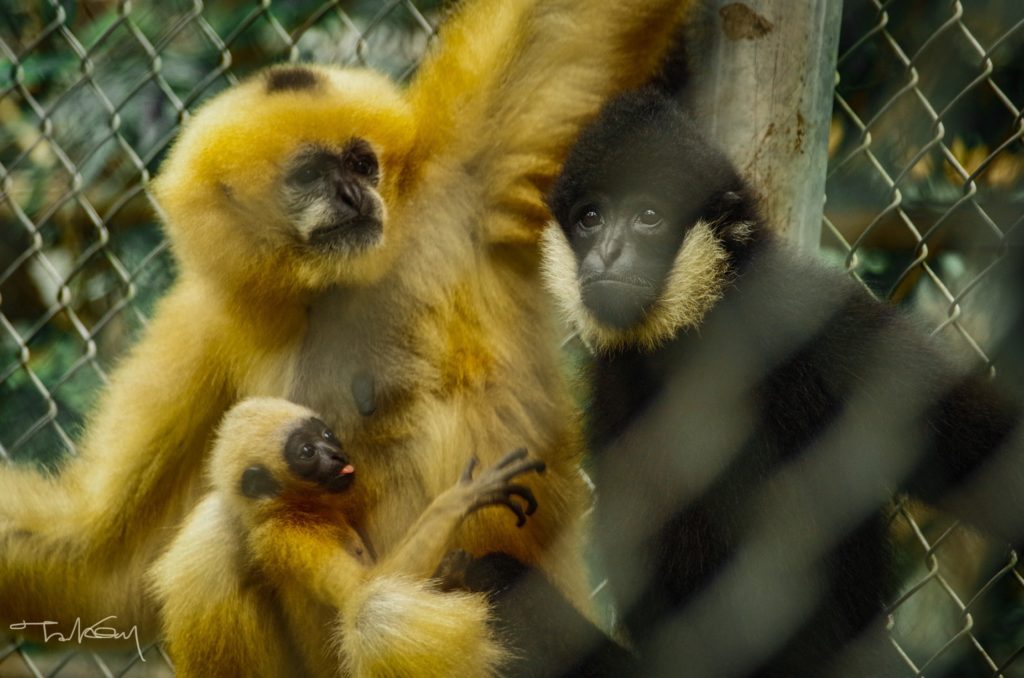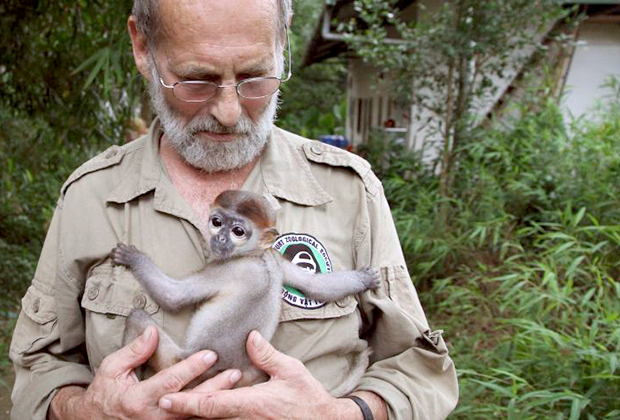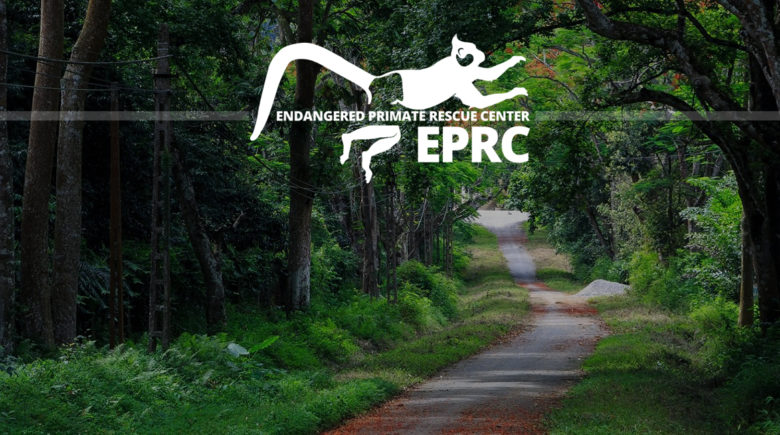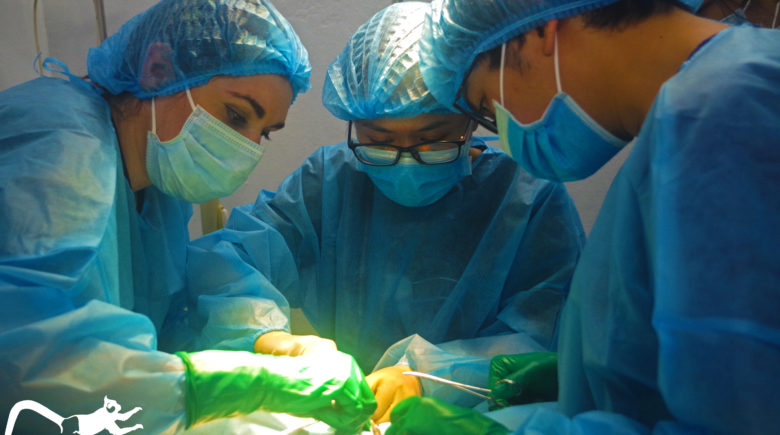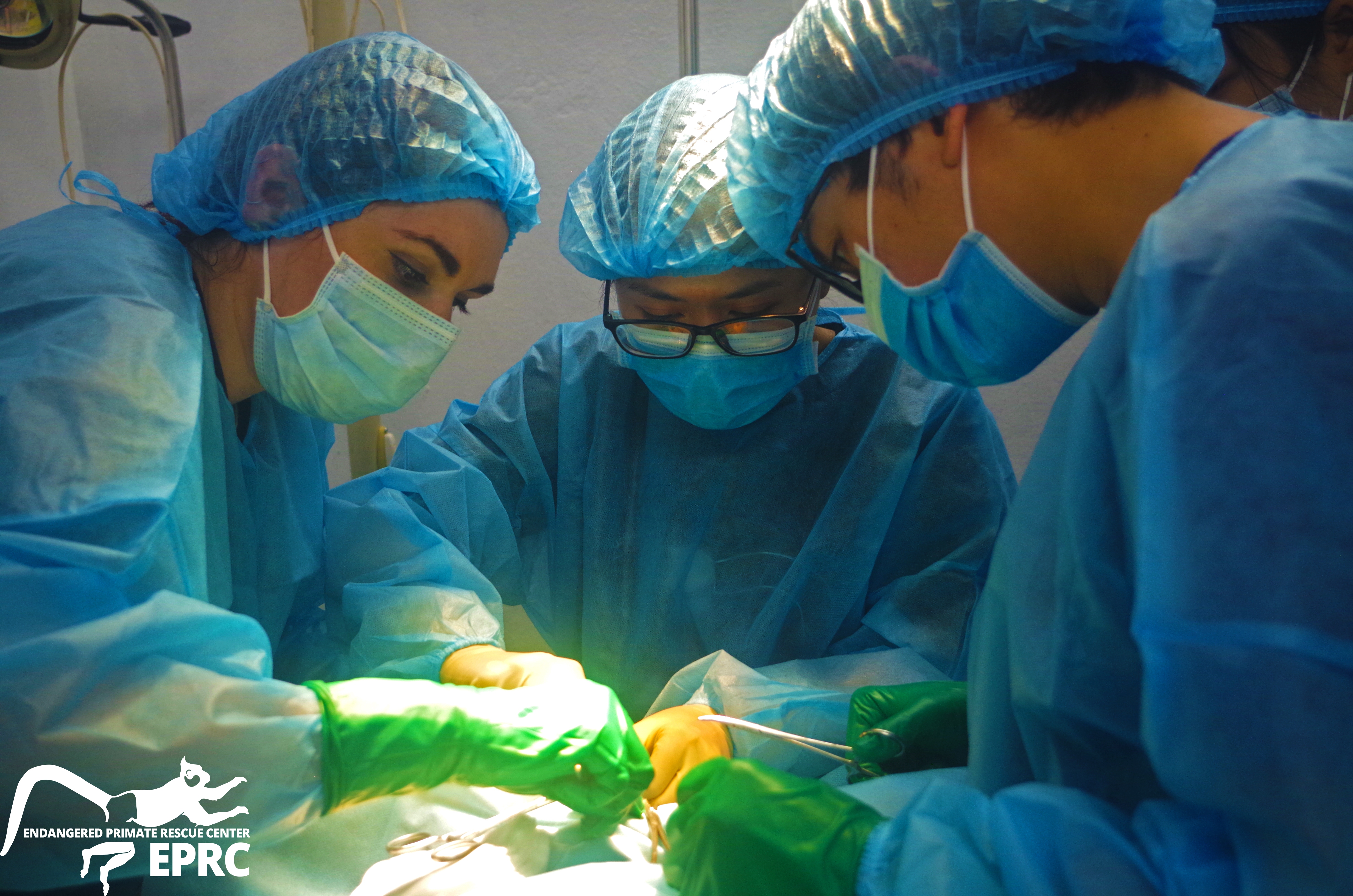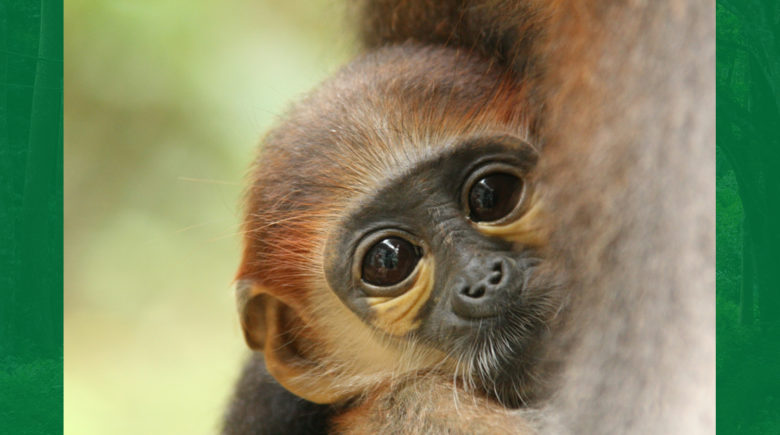𝗨𝘀𝗲 𝘃𝗲𝗻𝗼𝗺 𝘁𝗼 𝗽𝗿𝗼𝘁𝗲𝗰𝘁 𝗰𝗵𝗶𝗹𝗱𝗿𝗲𝗻𝘀
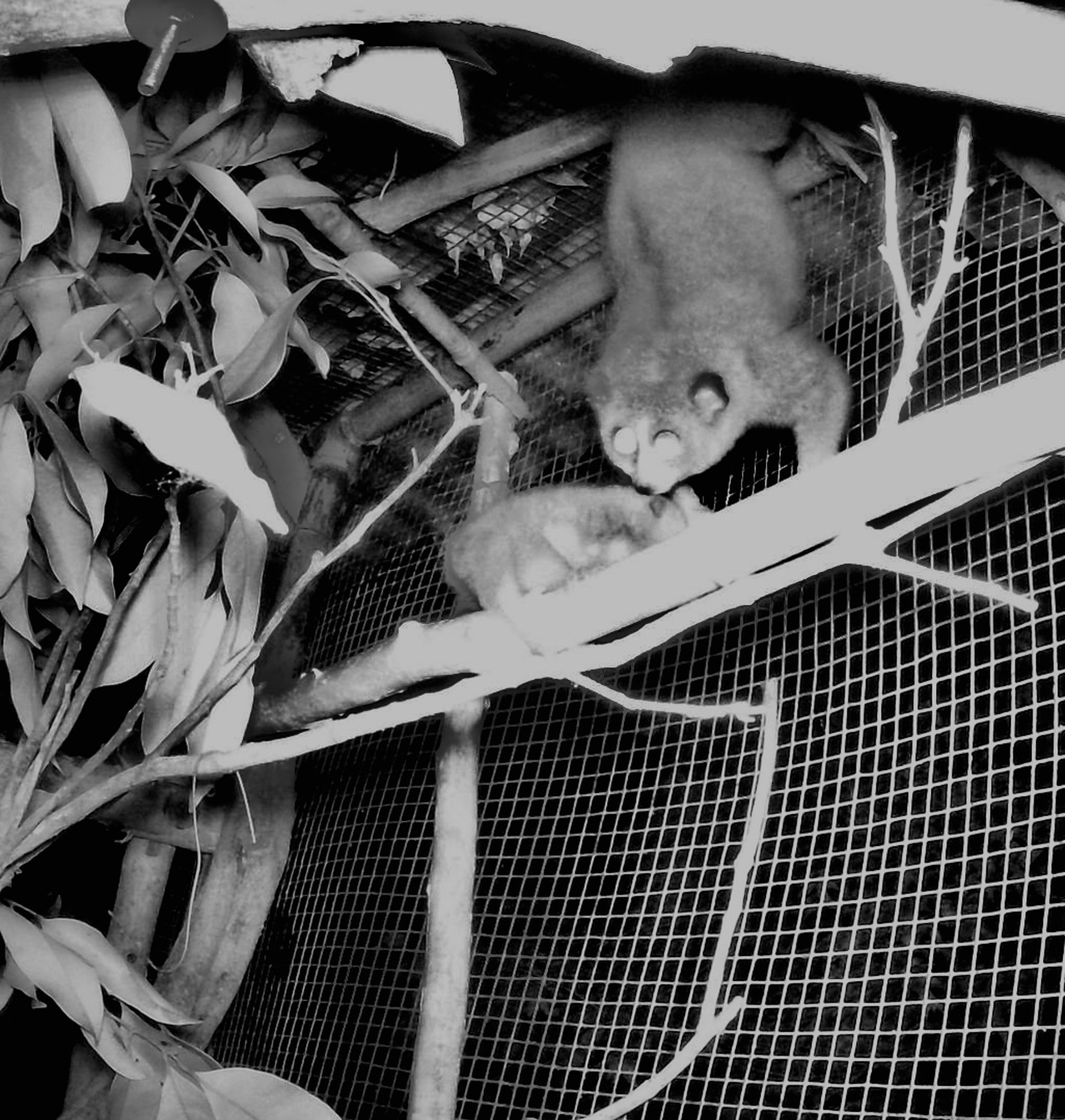 |
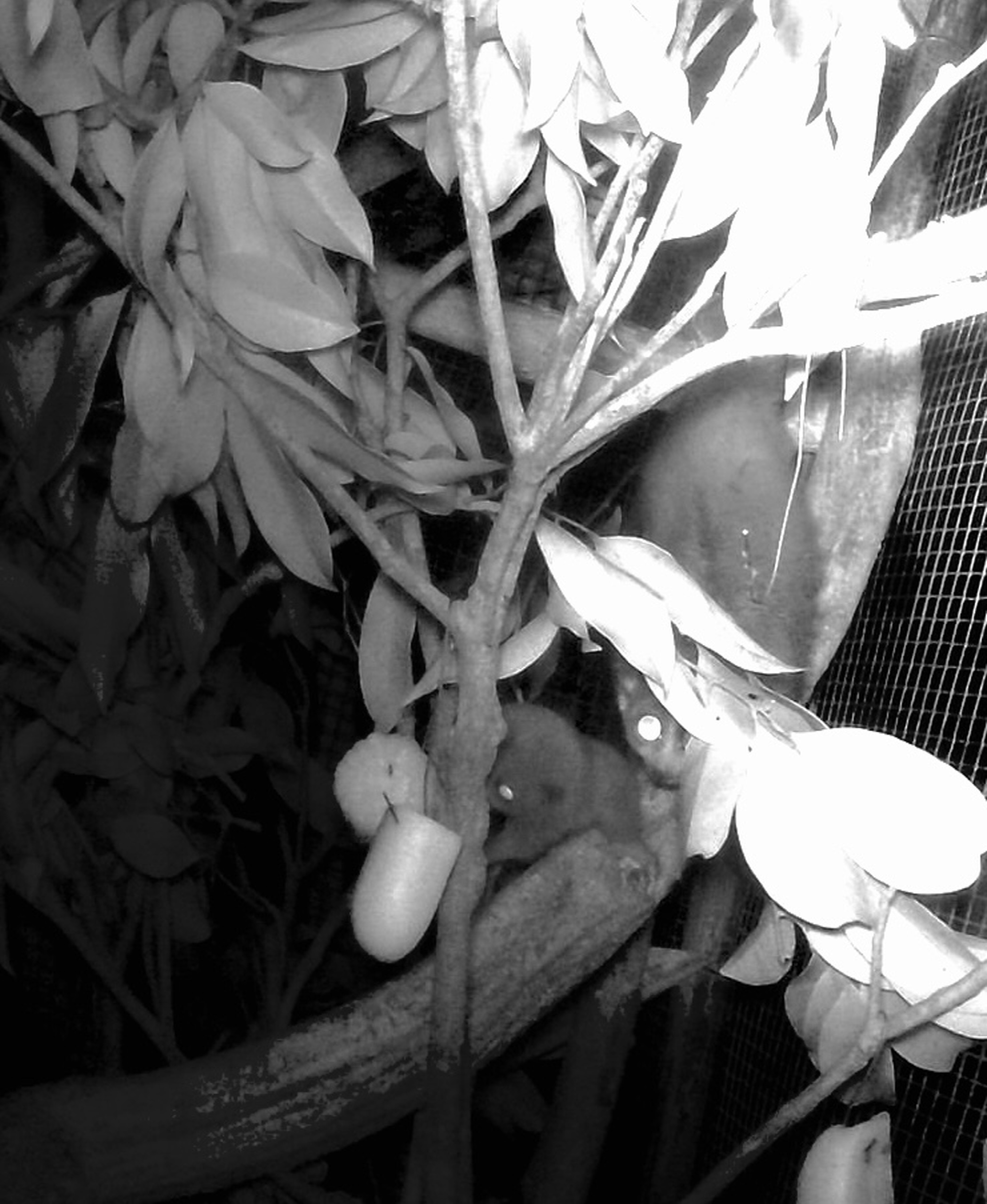 |
Some pictures recorded by installed infrared camera in a Pygmy Slow Loris (𝘯𝘺𝘤𝘵𝘪𝘤𝘦𝘣𝘶𝘴 𝘱𝘺𝘨𝘮𝘢𝘦𝘶𝘴) enclousure at EPRC. You can see the mother loris licking her baby. Not just a gesture of love, more than that, this is how the mother loris are ‘putting on’ her child a protective ‘armor’ before her mother goes for food.
Did you know? Slow Loris (𝘕𝘺𝘤𝘵𝘪𝘤𝘦𝘣𝘶𝘴 𝘴𝘱) is 𝘁𝗵𝗲 𝗼𝗻𝗹𝘆 𝗽𝗿𝗶𝗺𝗮𝘁𝗲 𝗶𝗻 𝘁𝗵𝗲 𝘄𝗼𝗿𝗹𝗱 𝘁𝗵𝗮𝘁 𝗶𝘀 𝗽𝗼𝗶𝘀𝗼𝗻𝗼𝘂𝘀? Currently the world records more than 500 species of primate have been found, and the Slow Loris is the only ones of which is known to be poisonous. To access its poison, a slow loris licks (or slowly rubs its hands) under glands near its armpits- and cover its teeth. And the resulting bite can expose a person or predator to fantal potentially anaphylactic shock. Similarly, by licking her baby’s fur before going out at night, the mother loris has created a shell that protects her childs from predators.
Sadly, the poison is not able to hold them off against hunters who feeding a demand for the primates in the illegal pet trade. Even when rescued, we found that many of slow lorises had their fangs broken by hunters or their former owner (and they do not regrow permanently) to take away their defenses. They will end up in very painful situations, lose their defenses, and even find food in the wild.
𝙇𝙚𝙩’𝙨 𝙩𝙤𝙜𝙚𝙩𝙝𝙚𝙧 𝙥𝙧𝙤𝙩𝙚𝙘𝙩 𝙥𝙧𝙞𝙢𝙖𝙩𝙚𝙨 𝙞𝙣 𝙩𝙝𝙚 𝙬𝙤𝙧𝙡𝙙.
# Primates are not pets.
VETERINARIAN RECRUITMENT
(Tiếng Việt phía bên dưới)
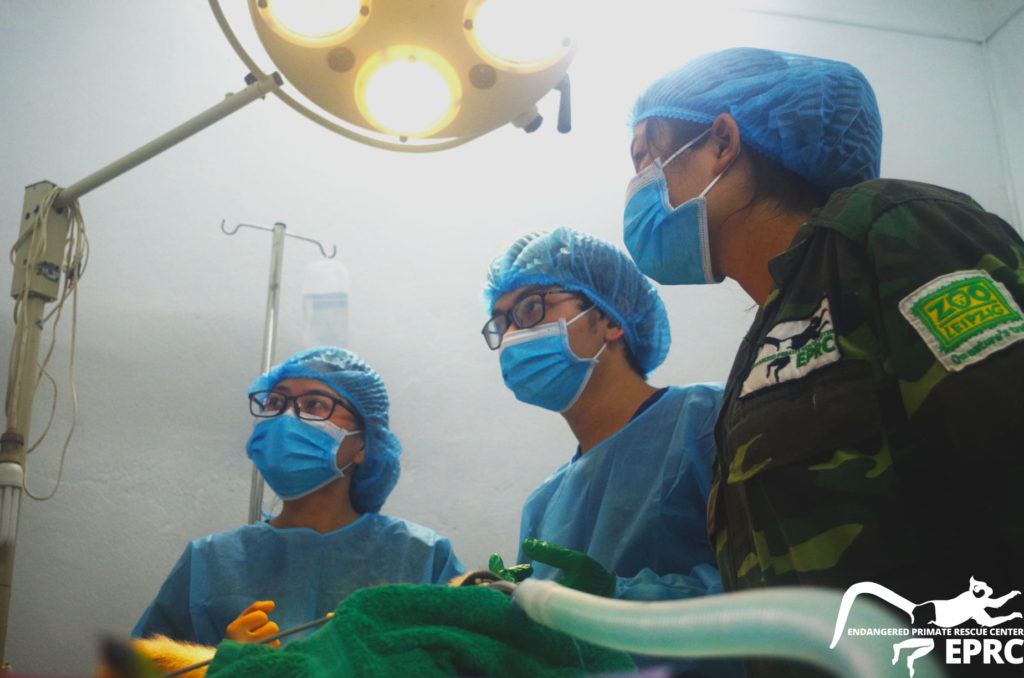
WORKING LOCATION
Endangered Primate Rescue Center, Cuc Phuong National Park, Nho Quan, Ninh Binh, Vietnam
DURATION
1 year with opportunity to extend
SALARY
Negotiate
START DATE
ASAP
WHO WE ARE
The Endangered Primate Rescue Center, based in Cuc Phuong National Park, Ninh Binh province, is a not for profit project dedicated to the rescue, rehabilitation, breeding, research and conservation of Vietnam’s endangered and critically endangered primate species.
RESPONSIBILITIES
- Working time: 5 days/week
- Health care for primates at EPRC.
- Diagnosis, treatment and care when needed
- Ready 24/7 for emergency cases in the rescue center
- Manage dietary recommendations and work with a wildlife nutritionist to provide optimal nutrition for each species and individual
- Store information both manually and in the ZIMS database for all animal shifts
- Veterinary operation and maintenance together with quality control and maintenance of machinery and equipments
- Work with students and researchers to learn more about the health of the animals at the center
- Share complex cases with the veterinarian and / or veterinarian in the area so that the best possible care for the animal
- Set up a reserve budget for consumption and inventory
- Anatomy of dead bodies and find the cause of death
- Periodic animal welfare reviews
- Collaborate for capacity building with the veterinary laboratory of Vietnam Academy of Agriculture
- Organize preventive measures to control / limit disease at the center
- Teaching & support keepers to deal with potential animal diseases
- Work with zoo staff to ensure the best animal care and train them what is needed to improve quality. Respect the caregiver’s experience and work together to get the job done
REQUIREMENTS
- Vietnamese citizen
- Bachelor’s degree or higher in Veterinary Medicine
- Active and eager to learn
- Have a positive attitude
- Good cooperation with the team and volunteers
- Proficient in written English (recommended) or will improve during work
- Flexible in the work schedule from sudden daily changes
BENEFITS
- Working for an NGO that protects wildlife
- Working in an English speaking environment
- Working in an office based in beautiful Cuc Phuong National Park
- Possible opportunities for work trips around Vietnam and internationally
- Various communication learning opportunities from international consultants and advisors
HOW TO APPLY
Send a cover letter and a recent CV, in English and Vietnamese to olivia.petre@eprc.asia
Applications: ongoing, hiring ASAP
DEADLINE:25/03/2021
————————————————————-
TIN TUYỂN DỤNG: BÁC SĨ THÚ Y
SỐ LƯỢNG: 02 người
ĐỊA ĐIỂM LÀM VIỆC
Trung tâm cứu hộ linh trưởng nguy cấp (EPRC), Vườn quốc gia Cúc Phương, Nho Quan, Ninh Bình, Việt Nam
TRUNG TÂM CỨU HỘ LINH TRƯỞNG NGUY CẤP
Trung tâm Cứu hộ Linh trưởng Nguy cấp có trụ sở tại Vườn Quốc gia Cúc Phương, tỉnh Ninh Bình, là một dự án phi lợi nhuận nhằm cứu hộ, phục hồi, nhân giống, nghiên cứu và bảo tồn các loài linh trưởng nguy cấp và cực kỳ nguy cấp của Việt Nam.
CƠ HỘI
- Thời gian làm việc 40 tiếng/ tuần.
- Được hưởng các chế độ, ngày nghỉ lễ theo luật lao động Việt Nam.
- Được làm việc tại một trong những trung tâm cứu hộ và bảo tồn động vật hoang dã đầu tiên tại Việt Nam.
- Có cơ hội được tập huấn, hướng dẫn nâng cao tay nghề bởi đội ngũ bác sĩ thú y giàu kinh nghiệm về cứu chữa động vật hoang dã trong và ngoài nước.
- Làm việc trong một môi trường năng động, gần gũi thiên nhiên. Được tiếp xúc với nhiều chuyên gia nước ngoài, có cơ hội giao tiếp và cải thiện nâng cao trình độ Tiếng Anh.
THỜI GIAN
Ký hợp đồng 1 năm với cơ hội được gia hạn thêm.
MỨC LƯƠNG
Thỏa thuận, dựa theo năng lực
NGÀY BẮT ĐẦU
Càng sớm càng tốt
TRÁCH NHIỆM, MÔ TẢ CÔNG VIỆC
- Báo cáo trực tiếp với giám đốc trung tâm về tình trạng sức khỏe động vật
- Thời gian làm việc: 5 ngày / tuần (8 tiếng /ngày).
- Chăm sóc sức khỏe cho các loài linh trưởng tại EPRC. Chẩn đoán, điều trị và chăm sóc động vật khi cần thiết
- Sẵn sàng 24/7 cho các trường hợp khẩn cấp trong trung tâm cứu hộ
- Đưa ra các khuyến nghị về chế độ ăn uống và làm việc cùng với chuyên gia dinh dưỡng động vật hoang dã để cung cấp dinh dưỡng tối ưu cho từng loài và cá thể
- Đánh giá phúc lợi động vật định kỳ
- Tổ chức các biện pháp dự phòng nhằm kiểm soát / hạn chế dịch bệnh tại trung tâm
- Lên kế hoạch cho ngân sách dự phòng tiêu dùng trong thú y, vận hành và bảo trì phòng thú y
- Giải phẫu tử thi và tìm nguyên nhân tử vong
- Lưu trữ thông tin cả thủ công và trong cơ sở dữ liệu ZIMS về tình trạng động vật
- Làm việc với các sinh viên và nhà nghiên cứu để tìm hiểu thêm về sức khỏe của động vật tại trung tâm. Hợp tác nâng cao năng lực với phòng thí nghiệm thú y của Học viện Nông nghiệp Việt Nam
- Chia sẻ các trường hợp phức tạp với bác sĩ thú y và / hoặc bác sĩ thú y trong khu vực để có thể chăm sóc tốt nhất cho động vật
- Dạy và hỗ trợ các nhân viên chăm sóc tại trung tâm trong việc đối phó với các dịch bệnh tiềm ẩn
- Làm việc với nhân viên sở thú trong nước và nước ngoài để đảm bảo việc chăm sóc động vật tốt nhất và cải thiện chất lượng. Tôn trọng kinh nghiệm của người chăm sóc và cùng nhau hoàn thành tốt công việc.
YÊU CẦU
- Là công dân Việt Nam
- Tốt nghiệp bằng cử nhân trở lên chuyên ngành Thú y
- Tinh thần làm việc năng động và ham học hỏi, thái độ tích cực.
- Có kỹ năng làm việc nhóm
- Thành thạo tiếng Anh là một lợi thế
- Có khả năng linh hoạt trong lịch trình làm việc
CÁCH THỨC ỨNG TUYỂN
Gửi thư xin việc và CV, bằng tiếng Anh và tiếng Việt đến địa chỉ mail olivia.petre@eprc.asia hoặc info@eprc.asia
THỜI HẠN ỨNG TUYỂN: 25/03/2021
WANTED – Volunteer and Research Coordinator
Volunteer and Research Coordinator
DURATION
1 year with opportunity to extend
SALARY
7,000,000 VND a month plus allowances (phone and transportation) 300,000 VND per month and housing support of 500,000 VND a month
START DATE
ASAP
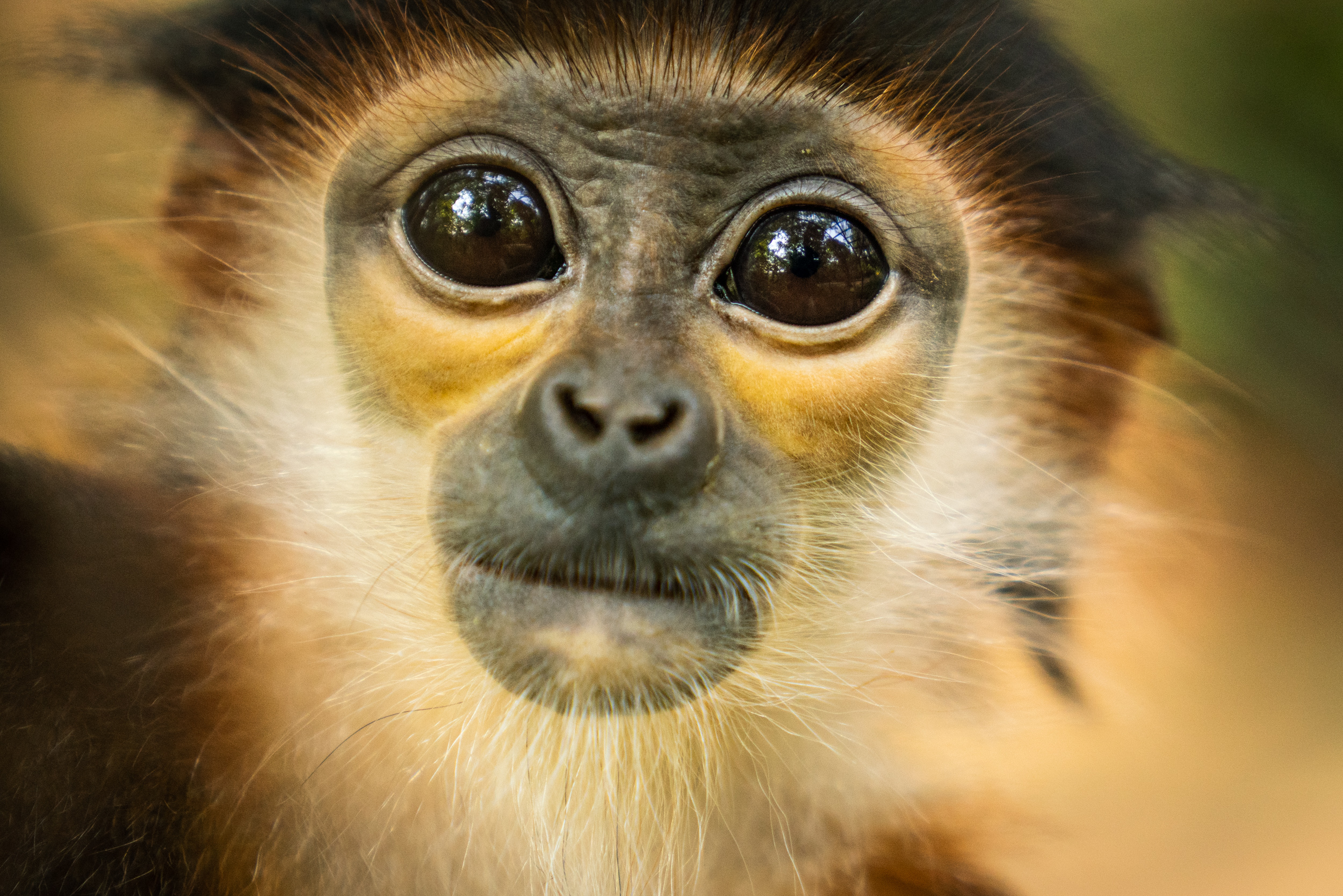
WHO WE ARE
The Endangered Primate Rescue Center, based in Cuc Phuong National Park, Ninh Binh province, is a not for profit project dedicated to the rescue, rehabilitation, breeding, research and conservation of Vietnam’s endangered and critically endangered primate species.
The primary function of the EPRC is to provide rescue and rehabilitation to endangered and critically endangered primates that have been confiscated from illegal wildlife trade. We have established captive populations of highly endangered primate species, with a final aim to reintroduce and release these animals as stable family groups into well-protected natural areas. During this process we work to achieve our goals with compassion, commitment, transparency and co-operation.
We’re looking for a volunteer and research coordinator to help us improve our current program. Over the past two years we have an increased interest from people both in Vietnam and internationally to volunteer at our center, and we want to ensure that the volunteers can contribute to our mission whilst having a memorable stay here in Vietnam.

